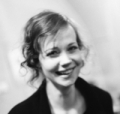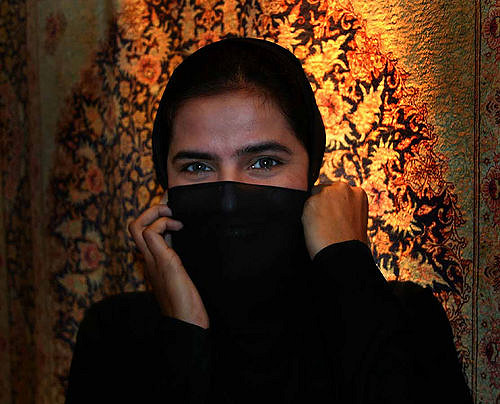You have no items in your cart. Want to get some nice things?
Go shoppingLast autumn I was in Brazil for conference with colleagues from all over the globe. For the final night, we were asked to wear the traditional dress of the region where we work – and to prepare and perform a regional dance. Coming from the Middle East, my team arrived to the event in abaya (for the women) and dish-dash (for the men). Part of our dance was a spectacular reveal where we whipped off the abayas to reveal skimpy belly-dancing costumes beneath.
For me it’s a fair metaphor for Dubai itself, the city I’ve lived in for a year and a half now. Modesty on top with pleasures of the flesh beneath. The UAE is a Muslim country, but it’s teeming with expats – 85% of the population. Many of these are the lower end of construction workers, taxi drivers and those in the service industry, chiefly Pakistanis, Indians, Nepalese and Filippinos (the employment “caste” system in terms of nationality warrants a separate standalone article or better still an entire book). Yet a healthy proportion are young, party-loving Westerners out to enjoy the tax-free lifestyle to the max for these few halcyon years, before homesickness and family demands inevitably draw them back to their native lands.
Dubai does a lot to draw foreign workers, foreign investment and tourists to the country. It boasts, brags and crows about the biggest mall in the world, the tallest building, the manmade islands and the 7* hotel. So what are the limits, and where are the lines drawn?
It’s worth saying that UAE is no Saudi. The only thing that stops me driving is my lack of ability, not my sex. I’m not required to cover my hair in public. The rule of thumb in Dubai, which you’ll see displayed in shopping malls, is that you should be covered from your shoulders to your knees. But the very reason for the signs in the malls is that they are practically the only place tourists go where this applies. You can be on the beach in your bikini without any hassle. In bars and hotel women frequently wear miniskirts and hot-pants. We don’t go to work like that, but who does in Europe or US?
When it comes to relationships, the policy is to look the other way – up to a certain point. Technically, flat-sharing is illegal and men and women can’t live together unless they are married. Vast numbers of them do. If you are an Emirati/muslim you are more likely to be punished if caught – but no one is really checking. Sex outside marriage is also technically illegal. But unless there is proof, i.e. you get pregnant, again no one is checking. And birth control including the pill is available over the counter. You are however expected to be discreet. Public displays of affection are not tolerated. Snogging in night clubs leads to intervention by the security guards and I once had a taxi driver tell me to stop kissing my boyfriend in the back of his cab.
If you do get pregnant options are slim for those who want to stay in the country. This is part where it gets slightly scary. Some doctors will report you if you are not married, then you face jail and deportation. You can of course go abroad to have an abortion. To keep the baby, you must marry or leave.
Of course all the penalties rest with the woman – whether the issue at stake is immodest dress or a lack of chastity. In the case of rape, the woman is just as likely to be arrested as the man.
The legalities and culture of the country are one thing. But what about the culture of the expats community itself? It’s true that such comparative luxury goes to people’s heads. Dubai residents are known for being consumerist, obsessed with brands and bling. You can’t drive a car, you have to have an enormous 4×4. Handbags must look designer, even if they are fake. Everyone is constantly judging you on your appearance to the point where an abaya seems an attractive relief.
This obsession with appearance smothers all aspects of life. Men and women swap diets and exercise fads – but hardly ever books. Theatre, opera, ballet are all scarce and underappreciated. In frustration with this superficiality I’ve started asking guys who offer to buy me drinks what their favourite books are. The overwhelming response is “I don’t read – except articles on the internet”. Once someone mentioned a Jeffrey Archer tome [shudder].
It’s difficult to get to know people in Dubai. You meet them on a night out and they swear you’ll be best friends forever – and never call. With intimate relationships it’s even worse. There is such a glut of gorgeous, well-toned, well-tanned young things that everyone is always wondering if they can trade up. Commitment just doesn’t seem that attractive a scenario. If you don’t arrive in Dubai in a couple, it’s not terribly likely that you’ll leave in one. There are exceptions but they tend to prove the rule.
As for internet dating – forget it. Again, technically not legal but sites and apps operate. Unlike in the west however, a lot of them are used by guys looking for prostitutes or married men who want a no-strings affair.
And of course there’s the transiency of the place. People know they are not going to settle down forever in Dubai. So why saddle yourself with partner who might not fit with your long-term plans. More than that, this transiency is woven into the very air so it affects all your interactions, even unconsciously. To put in the hard work that a real relationship requires goes against the very spirit of everything that people are looking for when they rock up here – fun, freedom and fast living.
If you’re a young Western guy or even girl, respecting a few rules means you can have the most fun-filled time of your life. For those looking for something more serious, even the endless free drinks of Tuesday’s ladies nights can pall.

About Anne Brechin
Annie Brechin is a longtime poet and newbie screenwriter. Recipient of a Jerwood/Arvon Young Poets Apprenticeship and former Poetry Editor for The Prague Revue, she moved from Paris to Dubai last year.





